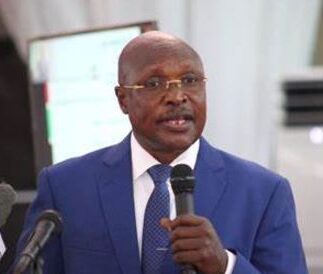The Eastern Equatoria State Council of Ministers in their regular meeting on Thursday committed to mobilize local resources to pay civil servants’ salary arrears.
According to the Eastern Equatoria State Government, over-dependence on the national government for resources impedes activities and leads to delays in the payment of salaries.
Elia John Ahaji, the state information minister said the Council of Ministers tasked county commissioners to take the lead in local mobilization and educating communities on the importance of resource mobilization.
“The governor briefed the Council of Ministers and conveyed the message from the president underscoring the importance of mobilizing local resources to meet the state’s financial obligations,” he explained. “The states have been tasked to mobilize resources to meet our obligations such as operations and salaries since the national government cannot mobilize all the most needed money.”
Minister Ahaji added: “We need to maximize non-oil revenue collection and as such the state reached out to county commissioners to go and sensitize communities on the task ahead of us.”
However, Peter Lokuju Lotirmoi, the Eastern Equatoria State Minister of Finance and Planning, said that unless the state is given the responsibility of collecting revenue from the borders, it will not be able to pay government salaries.
“It was declared that all the states should mobilize resources from anywhere to pay the salaries of their civil servants because the national government will not send any more money to the state. So, when the state comes with a decision, people should not quarrel now that we were tasked to mobilize resources to pay or civil servants,” he said. “What about activities in the state such as addressing insecurity? When we mobilize for seven months, then we shall be in a position to pay salaries for one month. The central government should not centralize the border resources, let them tell us because it is not easy for us to mobilize resources and some resources should be given back to the states.”
For his part, Opur Sisto, the headteacher at Airport View Primary School, said he was dismayed by the continuous delayed payment of salaries and urged the national government to allow states to manage their resources.
“The people in government assume they are at the top and because I am a civil servant they do not look back at us. My opinion is that we have our borders and if the [revenue] collections from Nimule border came early, people would get salaries on time like during Governor Ojetuk’s tenure,” he said. “However, since the border revenue collection was centralized, we are left suffering and even if they bring one month’s salary, it cannot solve anything. We still work and have not gone on strike. The national government should control all the borders but remit money to the state.”
Another government employee, Ading Susan who is a traffic police officer, contends that the revenues collected from the international borders in the state, if well managed, can pay off the civil servants’ salary arrears.
“I am not very happy because the government has taken one year without paying civil servants’ salaries and now we are going to another year. I wish the national government gave this notice to the states to mobilize resources earlier,” she said. “Eastern Equatoria State is rich and the revenue collected along the border would have helped a lot but it is now too late because people receive little money between SSP 30,000 to 60,000 which is not enough to buy a sack of flour is 150,000. The government officials should prioritize their interests because this revenue collected, if well managed, three weeks collection will pay three months salaries.”




